History
River Kwai
January 1, 2007
For many years the infamous Bridge on the River Kwai has attracted a great deal of tourists to the city of Kanchanaburi. The bridge owes its worldwide fame to a novel by French author Pierre Boulle and a distinguished film by David Lean. However, due to its natural beauty, the province, which is located around a hundred and thirty kilometers west of Bangkok, is also a popular holiday area. With the creation of the Death Railway in the Second World War, the Japanese planned to establish an alternative supply route across South East Asia built by POWs and forced laborers from all over Asia. The bridge has been moved from its original location as originally the railway viaduct was situated four kilometers further north. Despite this, the historic bridge on the River Kwai has lost nothing of its fascination and historic significance and its somewhat plain and unspectacular construction of steel and concrete is in stark contrast to its moving and dramatic history.
Cowpens: A Battle Remembered
January 1, 2007
On January 17th, 1781 at the Battle of Cowpens, Brigadier General Daniel Morgan changed the course of the Revolutionary War with his resounding victory over Lt. Colonel "Bloody" Banastre Tarleton's British redcoats. This historic event is commemorated today at Cowpens National Battlefield in South Carolina.
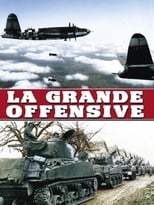
From Normandy to the Rhine
January 1, 2007
225th Yorktown: Battle for Victory
January 1, 2007
Celebrates the 225th anniversary re-enactment of America's momentous 1781 Revolutionary War victory at Yorktown, Virginia. The four-day commemorative event was held October 19-22, 2006, with many of the events staged on the original field. Four different battle re-enactments feature re-enactors from around the world portraying Continental Soldiers, American Militia and Riflemen, German Hessians, British Regulars, the French Army in America as well as cavalry, artillery, camps, 18th century women and sutlers. Cameras are "embedded" with these soldiers on the field of battle and in their camps, carrying the viewer on this journey to final victory in the American Revolution.

Amazing Grace
January 1, 2007
Amazing Grace, a powerful Homecoming gathering, hosted by Bill and Gloria Gaither, offers a timeless treasury of the great hymns of the church that will continue to survive for generations to come.
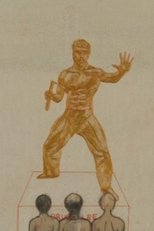
LEE ZO
January 1, 2007
There were three people who killed merely over differences in religion. One day the three believers who lost a mosque and icons through war no longer understood who belonged to which religion, and lost their reasons to fight. At that time, one statue rose in the center of town. Although the town thought it had regained peace by building the statue unrelated to any nation…
Vikings: Warriors From The Sea
January 1, 2007
Who were the real Vikings', what were they really like' The legend of the Vikings is brought to life in a dramatic and gripping program set in the tenth century and based around the island of Karmoy off the western coast of Norway - home of the first Kings.
Babylone - Dans les secrets de Léonard De Vinci
January 1, 2007

Cincinnati: Great, Near Great and Not So Great Moments in Cincinnati History Vol. 3
January 1, 2007
Highlights include Dan Ransohoff's "Cincinnati Algorithm," the Great Flood of 1937, the Taft political dynasty, a profile of Cincinnati Reds player Ival Goodman, the 1946 Cincinnati Bearcats football team, the last days and rebirth of the Albee Theater, controversy surrounding the Cincinnati bicentennial mascot "Cincinnatus," the walking metal men of Crosley Field fame, saving cash with Kash D. Amburgy, and a shopping trip through Swallen's.
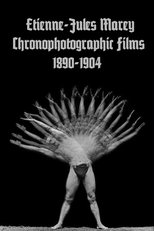
Etienne-Jules Marey: Chronophotographic Films 1890-1904
January 1, 2007
A film initiated by the Cinémathèque Française (France - 2007) The Cinémathèque Française digitized, restored and reanimated more than 400 fragile cellulose nitrate films of Etienne-Jules Marey’s work. These 400 incunables are presented for the first time in this film: a monument!
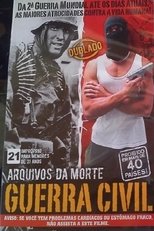
Arquivos da Morte - Guerra Civil
January 1, 2007
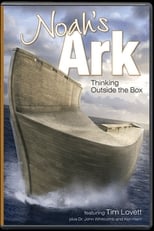
Noah’s Ark: Thinking Outside the Box
January 1, 2007
As we learn more about ancient shipbuilding we must ask the question, “When Noah constructed the Ark, wouldn’t he have used the technology of his day? Could he follow the Lord’s directions and actually build a ship able to withstand the cataclysmic tempest?” Following the example of Drs. Henry Morris and John Whitcomb’s ground-breaking book, The Genesis Flood, Ark researcher Tim Lovett applies new findings to the contours and interior design of the Ark, while maintaining an unwavering commitment to the Word of God.
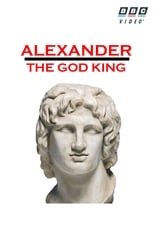
Alexander the God King
January 1, 2007
Alexander, a student of the brilliant philosopher Aristotle, worshiped the god Amun which he believed to be his father. He suffered from epilepsy and was gay, when his partner died he sacrificed all 5,000 inhabitants of a village for him. Alexander's legacy was that a man could be a god, by he has many peoples, cultures and beliefs influenced his vast empire. Alexander the Great had a vision: one civilized world with him as absolute leader! An ambition which had all districts with enormous bloodshed as a result. His craving for power was so great that in our modern world has no equal! While his influence is still noticeable, we know still very little about him. Greek and English archaeologists searching for years for one of the world's greatest mysteries:. the last resting place of Alexander the Great and his golden sarcophagus Alexander The God King is a fascinating journey through time and separate the truth from the legends. The ambition of one man, the course changed our history!
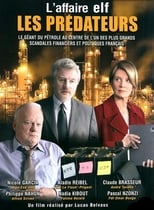
Elf, Kings of Oil
January 1, 2007
In 1988, supported by François Mitterrand, Loïk Le Floch-Prigent ran for the presidency of Elf. Alfred Sirven, through Christine Deviers-Joncour, introduced him to Roland Dumas. A year later, Le Floch-Prigent was appointed CEO of Elf Aquitaine. Sirven becomes Director of General Affairs at Elf...
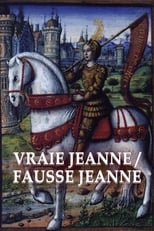
The Real Joan of Arc
January 1, 2007
The myth of Joan of Arc has fascinated people the world over. In the collective memory, she is the young shepherd girl who died at the stake having saved France. But 15th century chronicles report that following events in Rouen, certain people refused to believe she was dead and that another woman was burned instead.
52 Blocks: Show and Prove
January 1, 2007
As beautiful and sleek as it is deadly, 52 Blocks merits special conservation efforts as the United States' only existing native martial culture, as it is indeed, the jazz of the martial arts world. Across the African diaspora, there are manifestations of African-derived warrior-dances, capoeira in brazil, mani in Cuba, ladja in Martinique, pinge in Haiti- yet the US offshoot has remained esoteric, because it was suppressed throughout slavery, Reconstruction and Jim Crow and then obscured in the criminal justice system. The history, interviews and training of the martial arts style that created Breakdance and boxing greats like Mike Tyson.
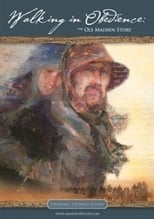
Walking in Obedience: The Ole Madsen Story
January 1, 2007
Walking in Obedience contains dramatic scenes and incredible scenery depicting the journey of a Danish family traveling with the Willie Handcart Company. It is told through the words of those that lived through the experience with both the Willie and Martin Handcart Companies.
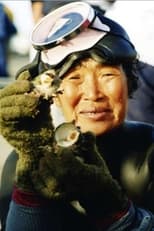
Diving Women of Jeju-do
January 1, 2007
Jeju-do is the largest of Korean islands and lies between Korea and Japan. There, for hundreds of years, women dive without breathing apparatus, to the ocean floor and collect shellfish, octopus, and urchins that they sell. The divers are in their sixties and seventies and their daughters do not want to inherit their work, lifestyle, and health problems that go with diving. As a filmmaker I was privileged to meet many of these women and dive with them. Their stories of hardship and pride confirmed my desire to record this unique and ancient tradition.
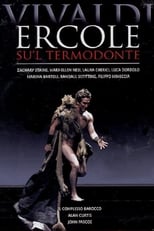
Antonio Vivaldi: Ercole Su'l Termodonte
January 1, 2007
Alan Curtis and his renowned Il Complesso Barocco ensemble present Vivaldi's groundbreaking opera about the mythical hero Hercules and his quest to retrieve the sword of Antiope, queen of the Amazons. Mary-Ellen Nesi stars as the ferocious warrior queen, and Zachary Stains is the beleaguered Hercules, trying to appease the gods for killing his own children in a fit of rage. Laura Cherici, Luca Dordolo and Randall Scotting co-star.
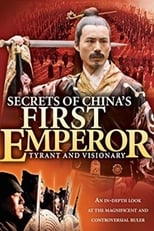
Secrets of China's First Emperor
January 1, 2007
Documentary, Historical Documentaries, Biographical Documentaries - This thought-provoking biographical program illuminates the fascinating life of Qin Shi Huangdi, "The First Magnificent Emperor of Qin," a man considered both influential and controversial in Chinese history. The ancient emperor's long list of accomplishments includes planning the construction of China's first Great Wall, building the world's largest burial site guarded by the famous Terracotta Army and amassing the most expansive empire of his time.